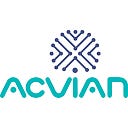Introduction.
Despite some current economic uncertainty related to the continuing COVID-19 pandemic and a perceived threat to its security following Russian invasion of Ukraine, the Estonian economy is performing well, growing at 7.5% in 2021, the fastest of any Baltic state and one of the highest in the EU. Projected growth for 2022 and 2023 is on a par with Latvia and Lithuania.
Estonian developed economy is seen to be modern, advanced and attractive, ranking first in the OECD tax competitiveness index in 2021, first in Entrepreneurial Activity by the World Economic forum in 2017, and ranking consistently highly in the European Commission Digital Economy and Society Index, especially in human capital measures.
An overview of Estonian labor law.
Hiring in Estonia will not only provide you with this skilled, innovative workforce, but it will offer other benefits too. Compared to other EU countries, wages are very affordable, and its geopolitical links between East and West has created a largely multilingual workforce capable of working across various cultures. Estonian education is faring well, with primary education amongst the strongest the worldand ranking 11th in the EU in terms of percentage of the population with tertiary education.
Contract law.
Estonia labor law is enshrined via employment contracts that must be executed in writing. Employees can only either be permanent or fixed term (casual contracts are not recognized). Probation periods must be capped at four months.
Working hours.
Like many countries in the EU, a working week in Estonia is typically forty hours split over five days. Unless you sign the European working time waiver, working more than forty-eight hours a week is not permitted. With the exception of certain jobs and sectors, there are several considerations regarding rest breaks that must be followed:
- A minimum of eleven hours of rest within a 24-hour period.
- Thirty minutes break in any six-hour period.
- Forty-eight hours rest each week.
There are specific rules regarding overtime as well. This must be offered as time back (in lieu) or paid at time and a half.
Leave.
Vacation leave in Estonia is quite generous, with a mandated twenty-eight days plus twelve public holidays. There is also the option of study leave and childcare leave. There are 140 days of maternity leave of which seventy can be taken prior to the birth date. Maternity is paid in full via public health insurance. Fathers can take thirty days of paid paternity leave, and there is also seventy days adoption leave for each parent, per each adopted child under the age of ten. Parental leave is capped at 435 days for one parent at a time, up to and including the age of three.
Pay and Taxes.
Estonia has a minimum wage, which, as of January 2022, is 3.86 euro per hour. Employee income tax is reasonably low, and administered at a flat rate of 20%, with further deductions of 3.6% in social security, 2% public pension and 1.6% in unemployment insurance. There are various employer payroll contributions as well. If you want to see for yourself how much payroll will cost you, Acvian payroll cost calculator will give you an accurate idea.
Conclusion.
Estonia is an attractive prospect for organizations, with low labor costs, a competitive business environment and strong growth. Nevertheless, it has stringent labor controls so global employment organizations must take care to operate within the boundaries of the law.
Acvian is a dependable and comprehensive partner PEO and provides high-quality employment solutions including payroll support, tax guidance, regulatory compliance and compensation and benefits consulting, ensuring that your business can focus on its strategic purpose rather than worrying about the red tape.
